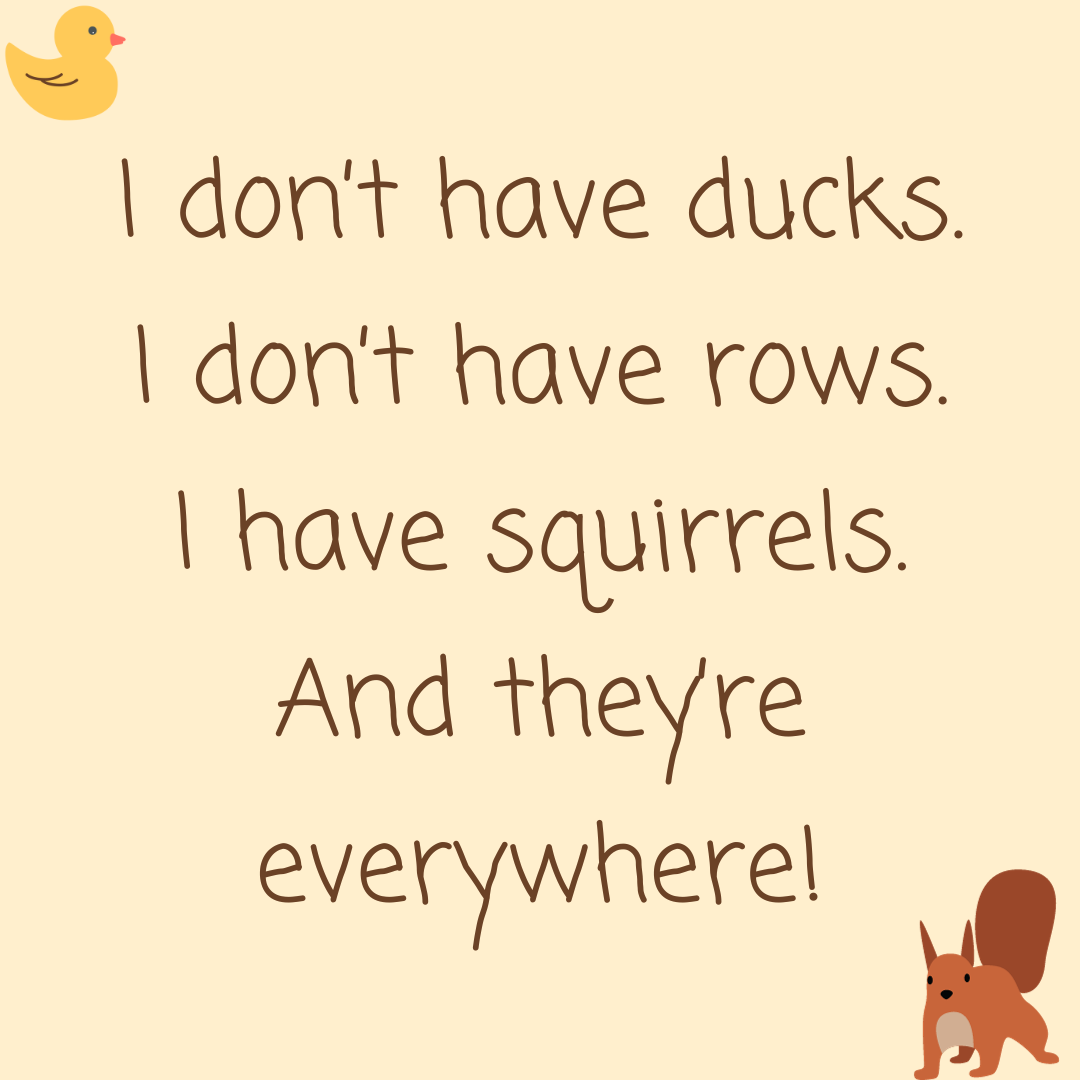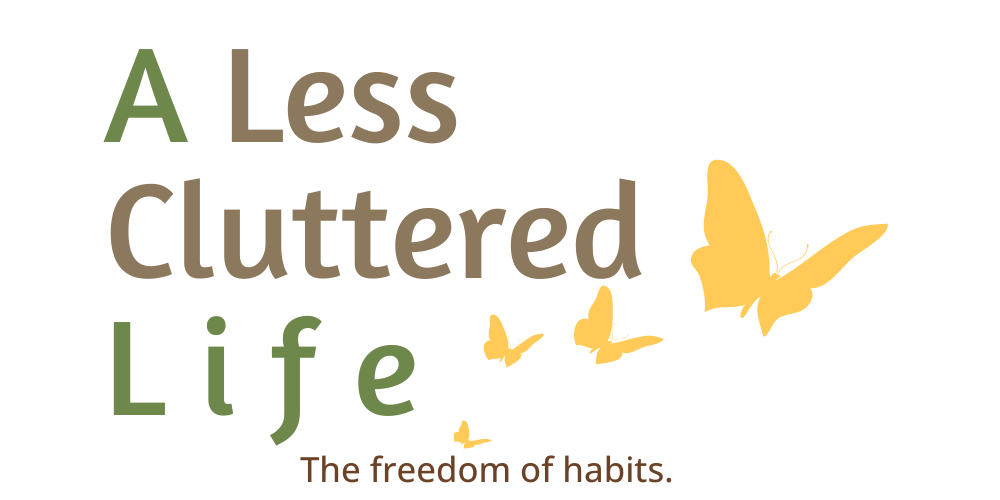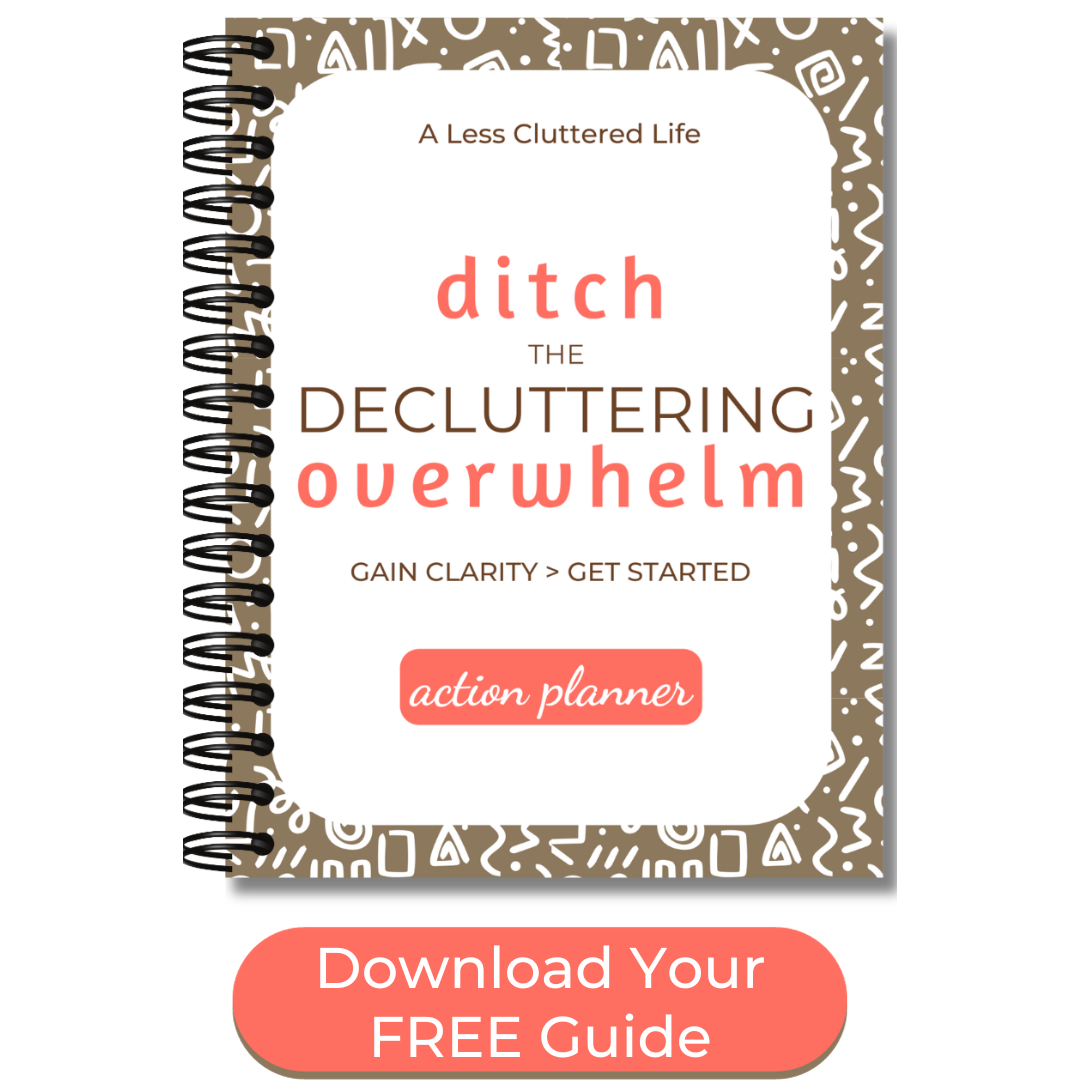|
Self-care helps you feel better. So, imagine a process that would help you to alleviate stress, get clear on your priorities, and even free up time? You can get this, and more, from decluttering. Instead of looking at decluttering as a chore, view it as a path to self-care. by Susan McCarthy While massages, mani/pedis, and special dinners out feel wonderful, they aren’t the only way to enjoy self-care. And if you’re struggling with clutter around your home, you may feel that you don’t deserve to feel calm and positive until after you declutter. Instead, what if you saw decluttering as a form of self-care as opposed to merely being one more chore on your never-ending to-do list? And while clearing clutter doesn’t quite count as pampering, it does have wonderful benefits. How to Use Decluttering as a Form of Self-CareSelf-care is the thing you do for yourself so that you have the inner and outer strength to give to others. Treating decluttering as a form of self-care reminds you that your physical environment affects your energy level and ability to focus. And you are in control of this environment. Method #1: Prioritize Where Your Time and Attention GoesThe process of making decisions while decluttering…deciding what to keep and what to get rid of…is all about learning what is important to you. Are you going to hold onto those skis, even though you haven’t skied in fourteen years? What about those five-year-old bestsellers that you never read…and nobody’s talking about nowadays? While you may feel uncomfortable about the money you spent on things that you never used, you’ve, by default, identified that these things aren’t important to you. I say that because you haven’t used these things. If you’re thinking, “but I haven’t had the time” consider urgent tasks that get done…even if you didn’t have the time. And not all urgent tasks are negative drains. Maybe a friend you haven’t seen for a while suggests getting together for dinner. You juggle your schedule to make it work. Decluttering involves opportunity cost – holding onto stuff that you aren’t using means that you can’t use that physical (or mental) space for something else. Holding onto books you haven’t read means that you can’t use that shelf to display items that you inherited from your grandmother that you truly cherish. And decluttering doesn’t just create clear shelves. It shows you where you want to focus your time and attention. Method #2: Bolster Your Feeling of AccomplishmentThere’s nothing like clearing your kitchen or dining room table, hanging the clothing living in a pile at the bottom of your closet, or loading bags of stuff in your car for a trip to the local donation center, to feel a sense of accomplishment. Seeing…and feeling…that things are getting done give you a sense of momentum. And once you’re moving, it’s easier to keep moving. (Think about the last time you were sitting on the couch, binge watching a show, while telling yourself to get up and do something. You probably didn’t get up until you needed to use the bathroom. And once you were moving, it was easier to tackle some tasks.) Unfortunately, the way a lot of people declutter…waiting for the weekend when they can push themselves for hours…doesn’t build momentum. Instead, do something every day. And depending upon the time and energy you have, what you do each day can vary…
The idea is to build your sense of accomplishment and your momentum. Expecting yourself to do more than you have the time, energy, or mental bandwidth to give will set you up for disappointment, not success. Method #3: Limit Visual Clutter and StressSeeing lots of stuff in a space can be distracting. While doing an activity in a room, you can find your attention wandering to all the other things you need to and want to do. Your stress builds as you feel yourself being pulled in multiple directions. Limiting visual clutter doesn’t mean that you need to have bare, empty spaces. However, the items you have displayed should be things that you enjoy. When decluttering a room, focus first on items on the floor and other flat surfaces. Return what you want to store or display in the space. Not only do you limit visual clutter in the room, but you create space to sort through items when you pull them from drawers and cabinets. Method #4: Eliminate BurdensAs I’ve previously mentioned, eliminating the things that you don’t, won’t, and can’t use, clears not only the items but the tasks associated with them. When you eliminate the candle making supplies, cake decorating materials, or other supplies that you haven’t used for ages…and you don’t see yourself finding time to return to these past interests…you eliminate the expectation that you should use these things. This is incredibly freeing. Telling yourself that you should use something or do an activity…when it’s clear that you won’t…creates a sense of shame that you aren’t even meeting your own expectations. Eliminating things that create a burden on your thoughts, time, and space actually creates more time, space, and energy for the activities that interest you now. Method #5: Celebrate Your ActionsHave you ever offered yourself a reward for decluttering a space? For example, you can get a massage when you finish decluttering the garage or you can shop for clothes after you declutter your closet. In his book, Tiny Habits, BJ Fogg explained why rewards like these don’t work. A reward needs to be connected to the action you’re rewarding…and come immediately upon the completion of the action. If it takes you a month of weekends to declutter your garage, the massage you schedule a week later isn’t connected to the effort you put in. Gretchen Rubin, in her book on habits, Better Than Before, suggests instead that you think of incentives for having done certain tasks. So, getting a massage after decluttering your garage is in response to feeling creaky and achy. This may seem like a subtle shift in thinking. But have you ever promised yourself a reward only to decide you didn’t really earn it because you took more time than you thought you should (or any other harsh reason)? An incentive is more of a logical outcome for taking an action. So, how can you reward your efforts? Immediately, according to BJ Fogg, using a technique he calls celebration. When you complete an action (no matter how small…remember, his book is called Tiny Habits), you tell yourself:
By doing this simple celebration immediately after taking action, you’re telling your brain that you took a positive action. Key TakeawaysHopefully, you’ve started to see how decluttering can support your other methods of self-care. Less clutter relieves the stress of feeling as if you should be doing more…reading, using, cooking, baking, wearing all the things in your home.
As you clear the items that you don’t, won’t, and can’t use, you prioritize the things that you are keeping. You’ll create more time and energy for the people, activities, and experiences that are important to you.
0 Comments
|
Categories
All
Hi, I'm SusanI'm a former teacher who became a professional organizer (and not because I'm a natural-born neatnik). I live with my husband and fluffy cat on a river in Massachusetts. I crochet, make handmade cards, and love reading young adult novels. Learn more about my decluttering journey here. |
|
Copyright 2024 Susan McCarthy - Susan@ALessClutteredLife.com -
Privacy Policies |
Proudly powered by Weebly

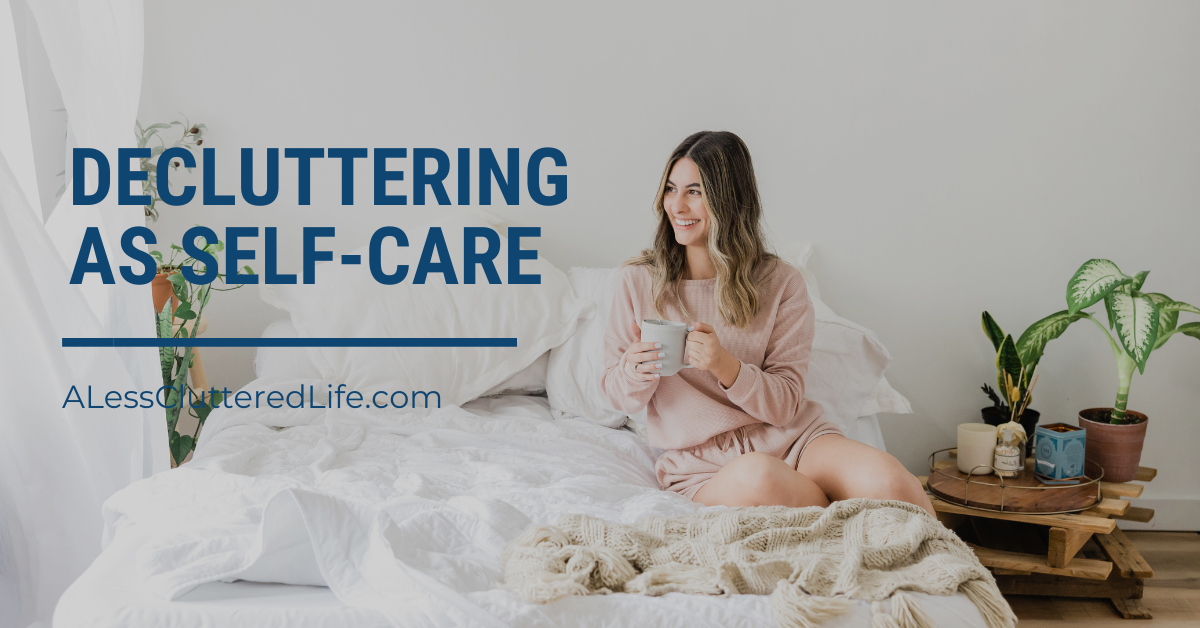
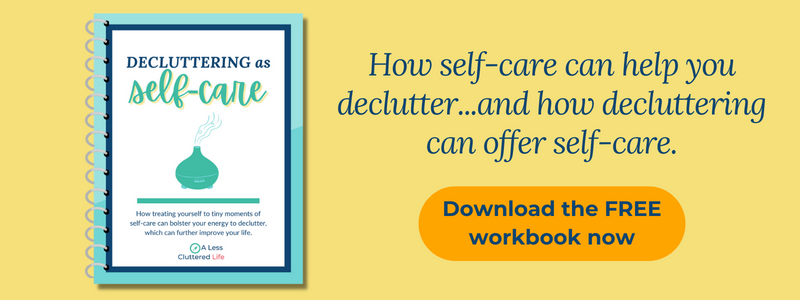
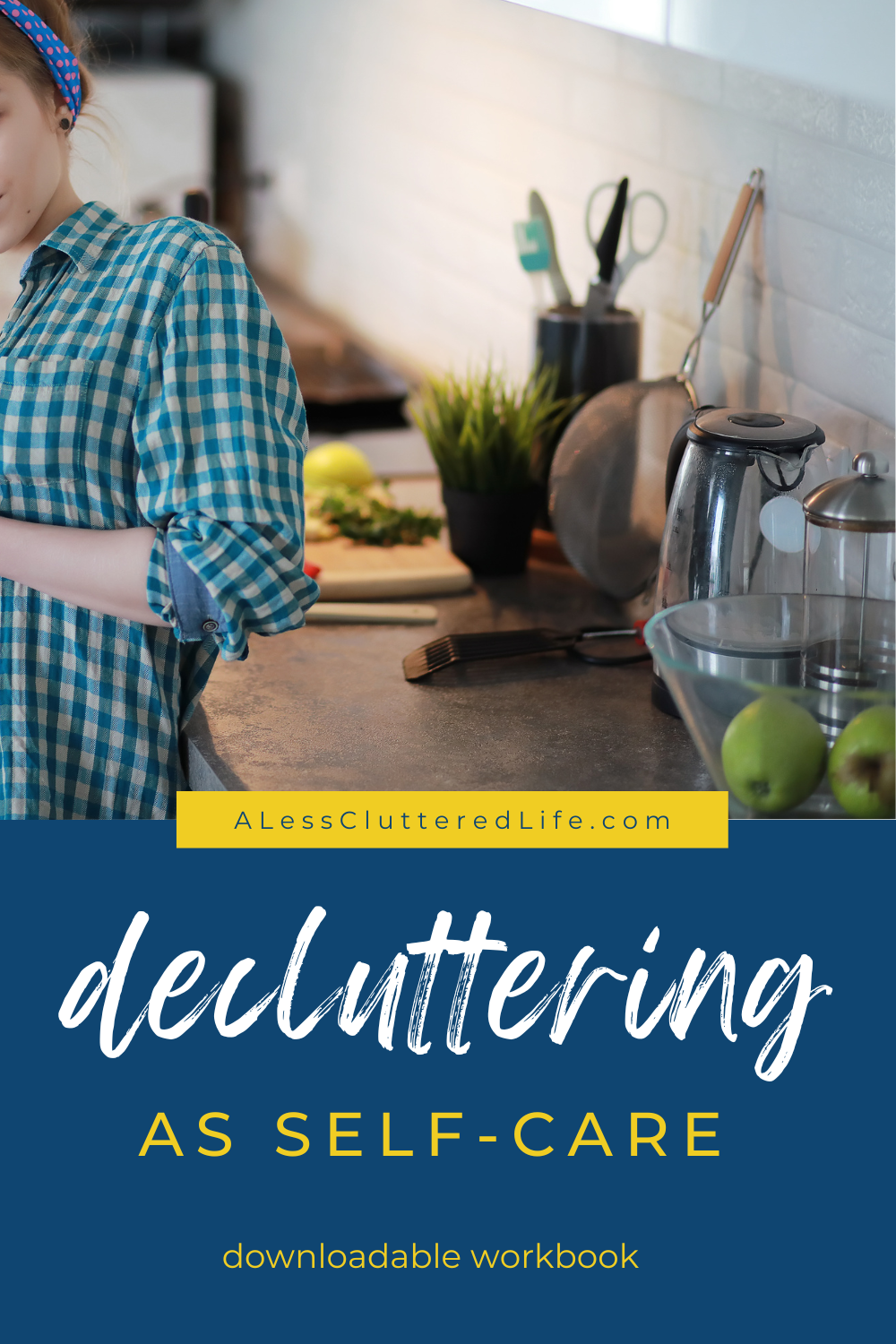
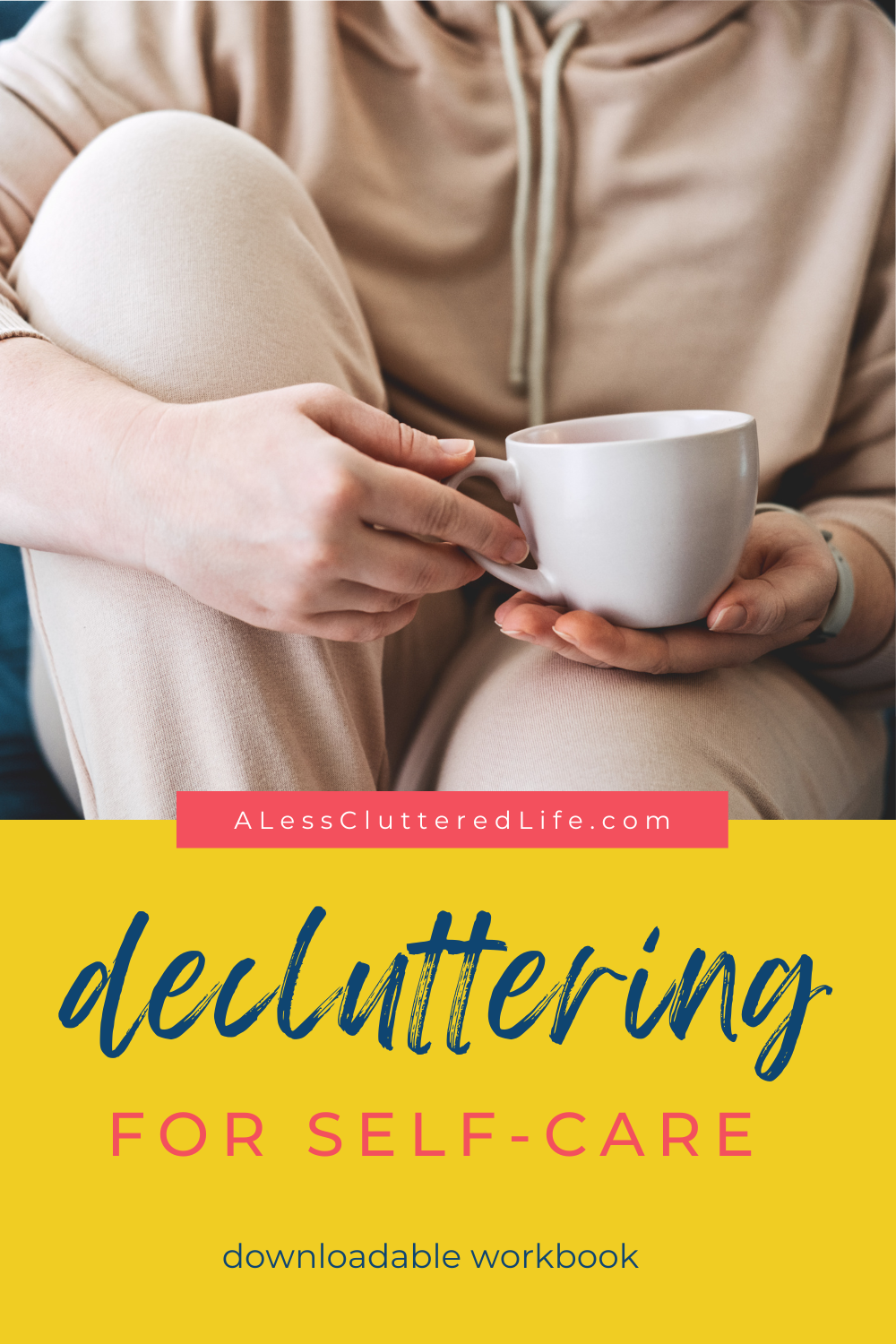
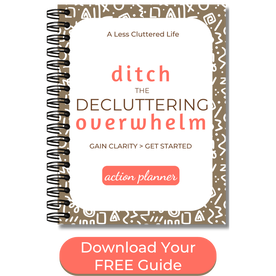

 RSS Feed
RSS Feed
